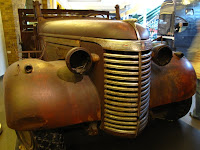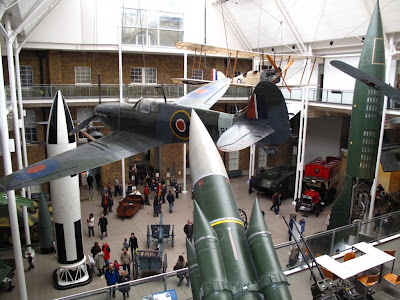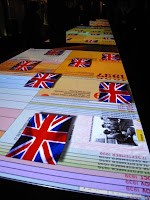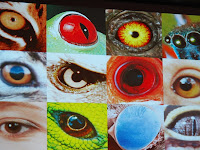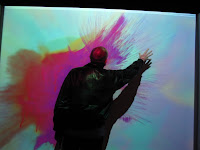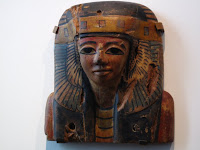
This 40 acre area in Central London, was virtually destroyed in World War II. A total rebuild programme started in 1965 and took 11 years to complete. At the time, the three central tower blocks of 42 stories, were the tallest residential buildings in Europe.
 Today it appears a very pleasant quiet area, with public walkways and gardens, as well as private gardens, with interesting water features. Although what the area is like at night, is a question we asked ourselves; especially as the residential front doors along several walkways had multiple locks, 5 being the maximum we counted on a single door.
Today it appears a very pleasant quiet area, with public walkways and gardens, as well as private gardens, with interesting water features. Although what the area is like at night, is a question we asked ourselves; especially as the residential front doors along several walkways had multiple locks, 5 being the maximum we counted on a single door. We enjoyed the sunshine looking around the estate, and enjoyed lunch at a cafe beside the 'lake'. The Museum of London is adjacent to the site, and although undergoing reconstruction at present, still provides a very interesting look at London down through the centuries.
We enjoyed the sunshine looking around the estate, and enjoyed lunch at a cafe beside the 'lake'. The Museum of London is adjacent to the site, and although undergoing reconstruction at present, still provides a very interesting look at London down through the centuries. 
 The residential areas are complimented by the Barbican Centre, a complex of theatres for films and concerts. We finished the day watching the new 3D Alice in Wonderland.
The residential areas are complimented by the Barbican Centre, a complex of theatres for films and concerts. We finished the day watching the new 3D Alice in Wonderland.


